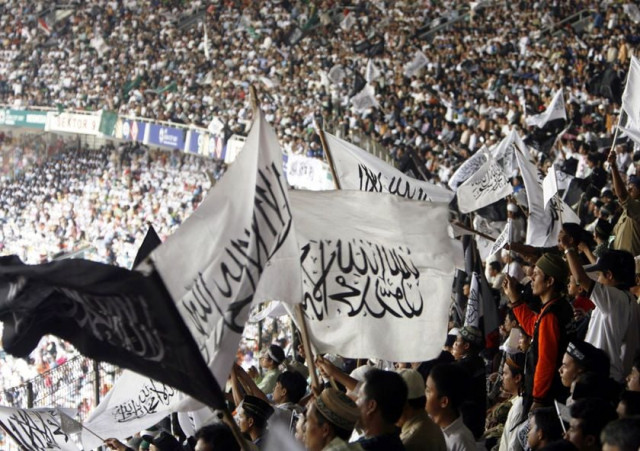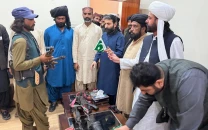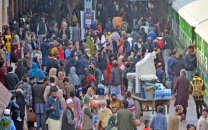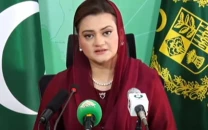Intelligence warning: Hizb ut-Tahrir planned ‘Arab spring’ in Pakistan
Classified report says the radical group sought to recruit ‘like-minded’ military officers to its cause.

Several weeks before the military detained a group of senior officers for alleged links with the radical group Hizb ut-Tahrir earlier this year, the country’s intelligence agencies warned that the banned organisation was planning an Egypt-style uprising in Pakistan by seeking support from ‘like-minded’ elements within the armed forces.
In a correspondence among the Punjab police, the Directorate of Inter-Services Intelligence (ISI), and the government in April this year, made available to The Express Tribune, there was a clear warning of the outfit attempting a ‘deep infiltration’ of the military and academia.
Wary of its burgeoning network and in what appeared to be an early warning of the group’s growing influence, the Crime Investigation Department (CID) of the police called for taking ‘appropriate’ steps to control the group that calls for establishing a caliphate in Pakistan by overthrowing the government.
“All were forewarned about what was coming,” an official told The Express Tribune on Sunday about the letter.
Officials said the arrest of Brigadier Ali Khan and four hitherto unknown majors in May came after months of such correspondence between various law-enforcement and intelligence agencies, hinting at ‘suspicious’ activities of Hizb ut-Tahrir activists and their possible collaboration with military personnel, particularly in Punjab.
The brigadier and majors are still in the military’s custody and might face a court martial for ‘inciting fellow officers for a mutiny’.
The crucial letter urged law-enforcement officials to take ‘preventive or pre-emptive measures’ to avert any untoward incident and make efforts to “identify and apprehend the miscreants before they succeed in their nefarious designs.”
According to the document, Hizb ut-Tahrir was working on a plan to seek an uprising in Pakistan similar to ones in Tunisia and Egypt earlier this year. “They wanted an Arab spring in Pakistan,” said an official familiar with the letter.
Hizb ut-Tahrir had regularly been distributing pamphlets and leaflets in middle and upper-middle class residential areas of large cities. This activity gained momentum after the successful uprising in Tunisia.
In its pamphlets, Hizb ut-Tahrir specifically addressed the armed forces, urging military personnel and the general public, especially the youth, to make a concerted effort to get rid of the government, citing the example of Tunisia.
The pamphlets also sought to utilise the public’s anti-American sentiments, inciting them against what it called the ‘pro-American’ generals who they said had engaged a ‘Muslim’ army in a war with their fellow brothers in the tribal areas at the behest of the United States.
Intelligence agencies warned that Hizbut Tahrir was trying to mobilise public opinion in favour of establishing a caliphate in Pakistan by overthrowing the government. As a first step towards their proposed revolution, they want to have an Arab-style uprising which would have the support of the armed forces.
If the organisation could not get generals to support its plans at the institutional level, it would seek officers who were supportive of its ideology to carry out its mission in an individual capacity.
After the arrest of serving army officers for their alleged links with Hizb ut-Tahrir, the government also detained some office bearers of the banned group.
Hizb ut-Tahrir has launched a campaign for their release, with posters seen on walls in different parts of Islamabad, condemning the arrests.
Published in The Express Tribune, July 25th, 2011.



















COMMENTS
Comments are moderated and generally will be posted if they are on-topic and not abusive.
For more information, please see our Comments FAQ